Reading Time: 5 Min
Nasal allergy, or as it is called allergic rhinitis, is usually not a life-threatening condition but gives a very uncomfortable feeling to the individual. The number of people suffering from nasal allergy nowadays is really high. It is very important to know that these allergies are not a result of any structural problem of the nose, which means that there is not an obvious problem that can be solved by surgery.
Usually, nasal allergy occurs due to inappropriate reactions to some substances (allergens) that don’t trigger any reaction normally. Some immune systems produce antibodies as a reaction to these substances, which in turn cause many discomforting symptoms such as congestion of the mucous membranes of the nose. This cause fatigue, sneezing, runny or stuffy nose, sinus pressure (which feels like pressure or pain behind your cheeks and eyes), sneezing (which may be sometimes uncontrollable), itchy eyes, and postnasal drip (feeling like pain or irritation in your throat due to mucus dripping to your throat from the back of your nose).
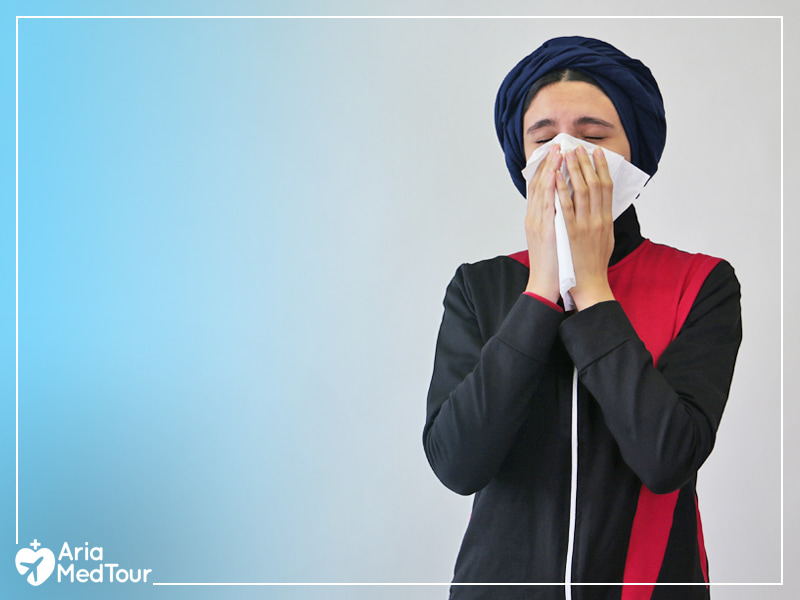
It is very important to understand what is the cause of your allergy.
The allergy may be very annoying and sometimes very hard to treat, which leaves the patient suffering from discomfort for a long period of time. Many substances can trigger allergies like dust mites, animal dander, and tree pollen. Nasal allergies are mostly seasonal.
It is very important to treat nasal allergy appropriately because the inflammation of the nasal membranes can lead to many complications that can be very hard to treat like acute or chronic sinusitis, apnea, sleep disturbance, otitis media, palatal abnormalities, dental problems, and Eustachian tube dysfunction.
While nasal allergy is usually cured with antihistamine drugs or sometimes steroid and by avoiding exposure to known allergens, but what we are going to discuss in this article is the link between nose surgery and nasal allergy, but first, we should know a little bit about the types of nose surgery.
Types of nose surgery
There are actually two major types of nose surgery that are very different from each other, which are cosmetic rhinoplasty and medical (functional) rhinoplasty. The former aims to improve the appearance of the nose, and the latter is intended to restore the normal function and form of the nose, and is usually done for people with deviated septum, in which case it is called septoplasty.
- Also Read: Open rhinoplasty vs. closed rhinoplasty
Nose Job Packages
Surgery + Hotel + Visa
Transfer + Interpreter
Can nose surgery treat nasal allergy?
Actually, there is no surgery for uncomplicated nasal allergy. But rhinoplasty surgery can be used to treat conditions that can exacerbate the symptoms of the allergy, like deviated septum, turbinate hypertrophy, and nasal polyps.
These conditions do not cause the nasal allergy themselves, but they can aggravate the symptoms of the allergy, making it very hard to breathe for the patient. That is why your doctor may sometimes recommend undergoing nose surgery to alleviate the symptoms of your nasal allergy.
One of the main complications of persistent untreated nasal allergy is chronic sinusitis, which is a chronic inflammation of the paranasal sinuses that persists for more than 12 months. This condition may manifest as nasal stuffiness, postnasal drip, and malaise.
The patient who suffers from chronic sinusitis due to nasal allergy may benefit from several types of sinuplasty, which can solve this problem and alleviate the persistent symptoms of this condition.
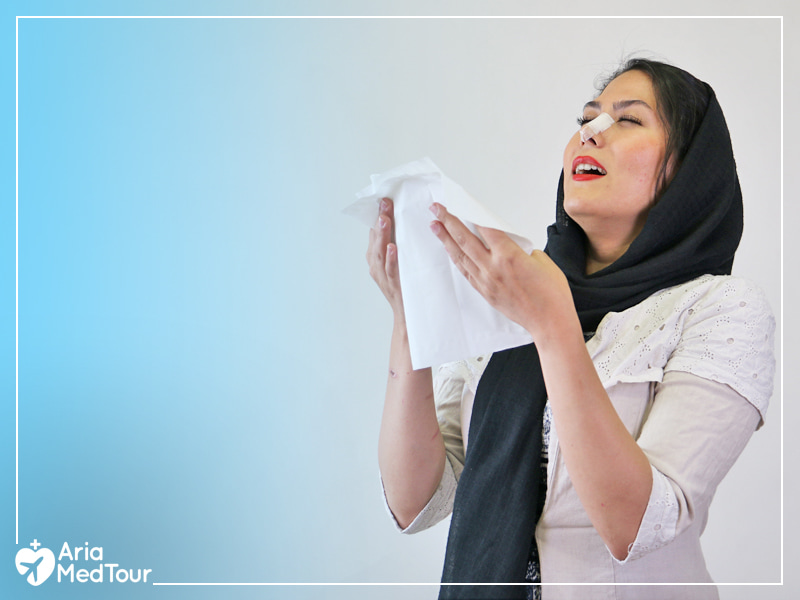
Rhinoplasty can treat conditions that increase the symptoms of your allergy.
Will nasal allergy affect the outcome of a cosmetic nose job?
If you suffer from nasal allergy and are considering undergoing rhinoplasty for cosmetic reasons, you might be worried that the allergy may affect the outcome of your surgery. But you shouldn’t. It is completely safe for the people who are suffering from nasal allergy to undergo a cosmetic rhinoplasty.
But it is important to know that the recovery after the procedure may be uncomfortable for those who suffer from nasal allergy. The patients feel a sense of congestion after undergoing a nose surgery which may be worse if the patient suffers from nasal allergy.
People who suffer from nasal allergy feel the need to blow their nose more in comparison with healthy people, but doctors usually recommend avoiding blowing the nose for a while after the procedure, which may be very uncomfortable for people who suffer from nasal allergy.
That is why it is usually recommended if you who suffer from a seasonal nasal allergy to schedule your procedure in a time of year when you usually have less allergic symptoms.
You May Like to See Before & After Photos of Rhinoplasty
You May Like to See Before & After Photos of Rhinoplasty
Summary
In short, we can say that nose surgery does not treat the nasal allergy itself but can treat accompanied conditions that can exacerbate the allergy symptoms such as deviated septum and nasal polyps. And it can be used to treat and relieve the symptoms of chronic sinusitis when it happens as a complication of nasal allergy.
Also, it is completely safe for patients suffering from a nasal allergy to undergo a cosmetic rhinoplasty. The procedure itself does not worsen the symptoms of allergy but all in all it may be a little bit uncomfortable. That is why it is recommended that these patients undergo this procedure in a season that is most comfortable for them.
- Read More: What’s the best time for a rhinoplasty?
Share this article:
Related Articles
Feel free to express your opinions or ask your questions regarding the article

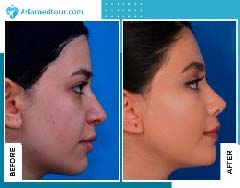
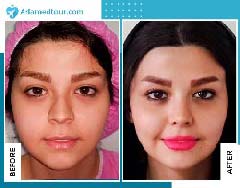
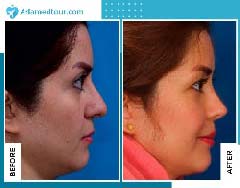
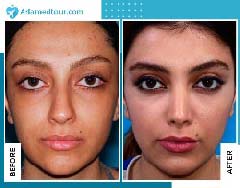
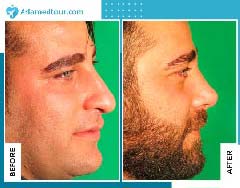

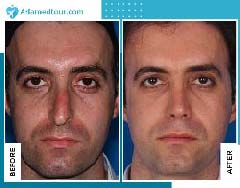
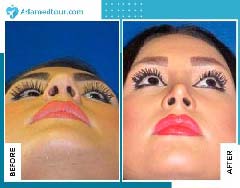
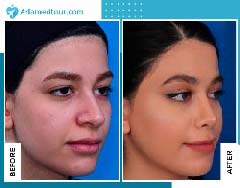
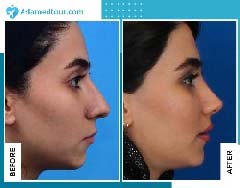




When & How Can I Wear Makeup After Rhinoplasty?
Skin Care After Rhinoplasty
Risks and Potential Complications of Rhinoplasty
How to Clean My Nose After Rhinoplasty?
How to Choose the Best Rhinoplasty Surgeon?